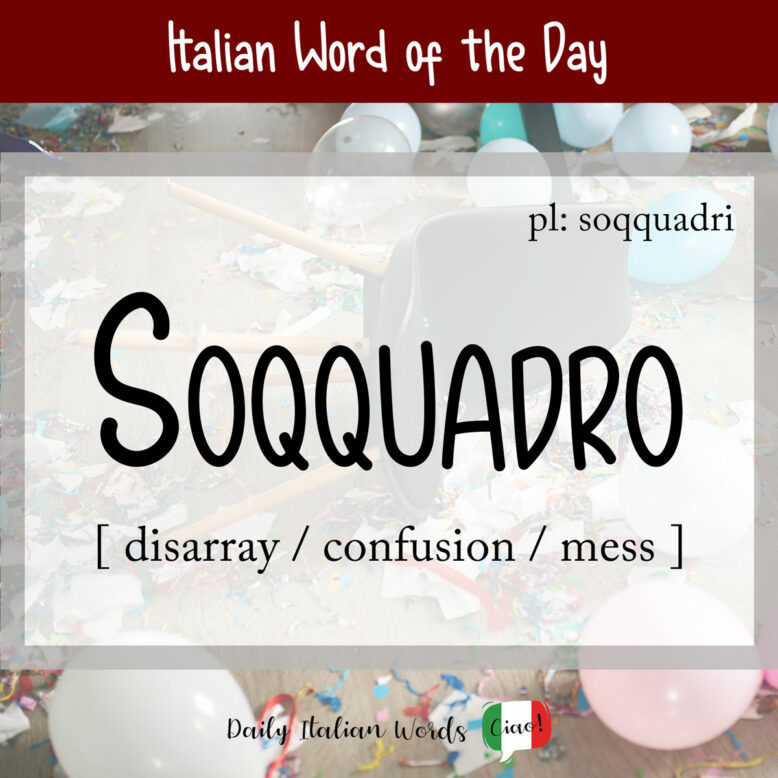Today’s Italian word is soqquadro (masculine, plural: soqquadri), which can translate in a number of ways in English including upside-down, disarray, mess, shambles, cluttered and topsy-turvy, just to name a few!

It comes from the expression sotto quadro (lit. under square), which was used by builders to refer to off-kilter or crooked structural elements that can cause a structure to collapse, or walls that aren’t at right angles.
A fun little fact you may not have known is that it is the only word in the Italian language, besides the near-obsolete biqquadro / beqquadro, written with two consecutive Qs!
Today it is used almost exclusively in the expression mettere a soqquadro (“to turn everything upside-down”), though you may also hear essere a soqquadro (“to be in a mess”).
I ladri hanno messo a soqquadro la casa.
The thieves turned the house upside down.
In rare cases, a soqquadro may follow nouns to describe their state of disarray, such as una stanza a soqquadro (a room in disarray).

Soqquadro may not be the most useful Italian word you’ll come across, but who ever said all words had to be useful, right?
Heather Broster is a graduate with honours in linguistics from the University of Western Ontario. She is an aspiring polyglot, proficient in English and Italian, as well as Japanese, Welsh, and French to varying degrees of fluency. Originally from Toronto, Heather has resided in various countries, notably Italy for a period of six years. Her primary focus lies in the fields of language acquisition, education, and bilingual instruction.


